 In Kwanza-Sul, she noticed the various rhythms and grandiosity of a country that cultivates laughter and a short memory to defend itself from the dramas that dehumanize it: slavery, colonialism, domination, small and large powers, opportunism, and ignorance. How dizzying the scheme of history in everyday life is. The generation to which she belongs worried about recovering the lost cultural memory in these violences and others, also with a vivid and intriguing look of the naivety and militancy of independence. I
In Kwanza-Sul, she noticed the various rhythms and grandiosity of a country that cultivates laughter and a short memory to defend itself from the dramas that dehumanize it: slavery, colonialism, domination, small and large powers, opportunism, and ignorance. How dizzying the scheme of history in everyday life is. The generation to which she belongs worried about recovering the lost cultural memory in these violences and others, also with a vivid and intriguing look of the naivety and militancy of independence. I
13.04.2024 | by Marta Lança
 For a long time, we treated art as an illustration, the idea that it was a product of its context. But what if we inverted that, since we live in an image civilization, and think of an image as a production, not a product, it produces values, it produces conceptions. And also, when you criticize internally that whiteness classification, we can go through a lot of different questions: who are the people being portrayed? They are, in general, men.
For a long time, we treated art as an illustration, the idea that it was a product of its context. But what if we inverted that, since we live in an image civilization, and think of an image as a production, not a product, it produces values, it produces conceptions. And also, when you criticize internally that whiteness classification, we can go through a lot of different questions: who are the people being portrayed? They are, in general, men.
28.03.2024 | by Marta Lança
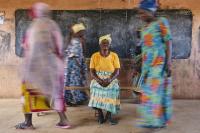 Lee-Ann Olwage, who admits she struggles with her own mental health issues, also has family members who have suffered or are suffering from Alzheimer's. For this reason, she states that, with her work, she aims to create a space in which the people she photographs can play an active role in creating the images and that, above all, makes them feel like the true “heroines” of their own stories.
Lee-Ann Olwage, who admits she struggles with her own mental health issues, also has family members who have suffered or are suffering from Alzheimer's. For this reason, she states that, with her work, she aims to create a space in which the people she photographs can play an active role in creating the images and that, above all, makes them feel like the true “heroines” of their own stories.
13.12.2023 | by Mariana Moniz
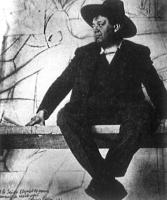 It is said in Mexico that good life stories are passionate. They are happy and painful, they tie and untie blind knots in the throat, like a harsh swallow of cheap tequila.
We set the tone and enter one of the taciturn taverns of the city of Guanajuato - the so-called "cantinas", where personal tales are distilled as the glasses advance. Rough stone walls in the half-light, damp breath. In my head, Chavela Vargas sings "Tú me acostumbraste." It's night and it's raining softly outside.
With a toast, we seal the moment. And we tell a secret life story.
It is said in Mexico that good life stories are passionate. They are happy and painful, they tie and untie blind knots in the throat, like a harsh swallow of cheap tequila.
We set the tone and enter one of the taciturn taverns of the city of Guanajuato - the so-called "cantinas", where personal tales are distilled as the glasses advance. Rough stone walls in the half-light, damp breath. In my head, Chavela Vargas sings "Tú me acostumbraste." It's night and it's raining softly outside.
With a toast, we seal the moment. And we tell a secret life story.
27.05.2023 | by Pedro Cardoso
 Two hours with Mia Couto in an engaging conversation that covers various aspects of his interests and career, his affective geographies, the diversity of peoples and their ways of life as inspiration for the stories, the environment, and the development model to be discovered, and how to treat nature not as a "resource". We talked about hard times of violence, and the utopia of Mozambican Independence. Literary subjects do not predominate, although the Mozambican author wishes he had more time to dedicate to writing. Also thinking about how to take the pleasure of reading further and how to help bring out new writers. A writer in the terrain.
Two hours with Mia Couto in an engaging conversation that covers various aspects of his interests and career, his affective geographies, the diversity of peoples and their ways of life as inspiration for the stories, the environment, and the development model to be discovered, and how to treat nature not as a "resource". We talked about hard times of violence, and the utopia of Mozambican Independence. Literary subjects do not predominate, although the Mozambican author wishes he had more time to dedicate to writing. Also thinking about how to take the pleasure of reading further and how to help bring out new writers. A writer in the terrain.
22.05.2023 | by Marta Lança
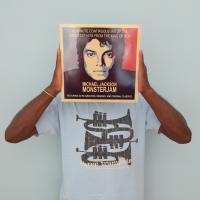 Balanced between various cultures, he has lived for 31 years in a more open and diverse Lisbon, an openness and diversity to which people like Lucky have contributed so much, from building the city to making the city dance.
This is a city of hard times, but also of encounters and possibilities with which he has grown up. In this text, we are led by the memories of Dj Lucky, between various sound tracks of quisange, semba, and afro blues, and multiple tracks on the floor, from Kinshasa to the Graça neighborhood, passing through Luanda, Cova da Moura, and Bairro Alto.
Balanced between various cultures, he has lived for 31 years in a more open and diverse Lisbon, an openness and diversity to which people like Lucky have contributed so much, from building the city to making the city dance.
This is a city of hard times, but also of encounters and possibilities with which he has grown up. In this text, we are led by the memories of Dj Lucky, between various sound tracks of quisange, semba, and afro blues, and multiple tracks on the floor, from Kinshasa to the Graça neighborhood, passing through Luanda, Cova da Moura, and Bairro Alto.
15.11.2022 | by Marta Lança
 Stuart Hall’s ironic use of “the west and the rest” is very real in the fixation among South Africans with “us” and “Africa”. It was encouraging that a sense of South Africa’s inextricable connectedness to the rest of the continent surfaced at moments in the FMF struggle. But the curiosity about and interest in African politics, literature, and academic knowledge still hasn’t really taken off, whether among students or established scholars.
Stuart Hall’s ironic use of “the west and the rest” is very real in the fixation among South Africans with “us” and “Africa”. It was encouraging that a sense of South Africa’s inextricable connectedness to the rest of the continent surfaced at moments in the FMF struggle. But the curiosity about and interest in African politics, literature, and academic knowledge still hasn’t really taken off, whether among students or established scholars.
30.05.2022 | by Sean Jacobs
 I think we always have the responsibility of looking into the ghosts of these colonial dreams and taking the ideas further. For example, we must rethink what are artwork features and what exactly defines them? Institutions change, in a slow and tedious way, but it happens. If we also think about the thesis and how it is configurated, how free can we be about the aesthetic part of it? Now we can offer “decolonize art studies” as a course. All the reconfigurations are a very long process to be achieved. A very important thing I would like to highlight is that where you are you must do your work and contribution. We should try to influence others with our work, inspiring them and trying to change what we know is wrong.
I think we always have the responsibility of looking into the ghosts of these colonial dreams and taking the ideas further. For example, we must rethink what are artwork features and what exactly defines them? Institutions change, in a slow and tedious way, but it happens. If we also think about the thesis and how it is configurated, how free can we be about the aesthetic part of it? Now we can offer “decolonize art studies” as a course. All the reconfigurations are a very long process to be achieved. A very important thing I would like to highlight is that where you are you must do your work and contribution. We should try to influence others with our work, inspiring them and trying to change what we know is wrong.
18.03.2022 | by Arimilde Soares
 My work has always been focused round connection. I’ve always wanted to tell stories that even though you know the audience and the subject might be different I would want the audience to look at the photo, the subjects, and each detail and for them to be able to see something similar.
Most people that look at my most recent project “MIXED” and probably don’t necessarily think of themselves as mixed, however if we really look back at history and ethnicity it’s clear that we are all mixed, we just haven’t identified it . We all came from Africa and our genetic disposition is remarkably similar. The only differences we notice are as a result of our ancestors colonising different parts of our planet. Effectively we’re all mixed as racial purity is a complete myth.
My work has always been focused round connection. I’ve always wanted to tell stories that even though you know the audience and the subject might be different I would want the audience to look at the photo, the subjects, and each detail and for them to be able to see something similar.
Most people that look at my most recent project “MIXED” and probably don’t necessarily think of themselves as mixed, however if we really look back at history and ethnicity it’s clear that we are all mixed, we just haven’t identified it . We all came from Africa and our genetic disposition is remarkably similar. The only differences we notice are as a result of our ancestors colonising different parts of our planet. Effectively we’re all mixed as racial purity is a complete myth.
28.02.2022 | by Alícia Gaspar
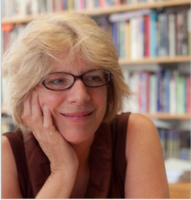 Today, I think that the field is challenged more than ever by the increased volatility of debates about what nations remember and consequentially forget. Monuments and memorials are being vandalized, torn down, officially removed. They can no longer be seen as simply part of an historical landscape. Much of this can be understood as battles over the historical narratives of monuments and their power, but it is also about tensions around who the nation mourns and who it sees or does not see as having a “grievable life” in Judith Butler’s term. So I see memory activism as a key site for the production of memory scholarship.
Today, I think that the field is challenged more than ever by the increased volatility of debates about what nations remember and consequentially forget. Monuments and memorials are being vandalized, torn down, officially removed. They can no longer be seen as simply part of an historical landscape. Much of this can be understood as battles over the historical narratives of monuments and their power, but it is also about tensions around who the nation mourns and who it sees or does not see as having a “grievable life” in Judith Butler’s term. So I see memory activism as a key site for the production of memory scholarship.
25.10.2021 | by Inês Beleza Barreiros
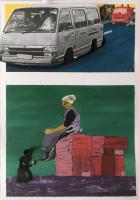 The article by Achille, I think, significantly points out the legitimacy of being limited from obtaining oxygen, by explicitly pointing out that for some parts of the world where healthcare is part of organized neglect, we are faced with more than just the need to physically breathe. There is a prohibition of breathing that is systemic in nature which is part of a larger need for the freedom to breathe (live). For example the violent killings of black civilians by the police in South Africa due to an unchecked implementation of COVID-19 laws and regulations left us questioning the relevance (need) for policing systems embedded in colonial rhetoric.
The article by Achille, I think, significantly points out the legitimacy of being limited from obtaining oxygen, by explicitly pointing out that for some parts of the world where healthcare is part of organized neglect, we are faced with more than just the need to physically breathe. There is a prohibition of breathing that is systemic in nature which is part of a larger need for the freedom to breathe (live). For example the violent killings of black civilians by the police in South Africa due to an unchecked implementation of COVID-19 laws and regulations left us questioning the relevance (need) for policing systems embedded in colonial rhetoric.
08.04.2021 | by Marcos Jinguba
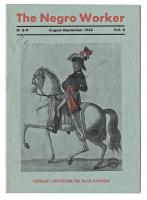 The significance of Mexico for this work is still emerging. Much more remains to be seen about just how deeply embedded the Mexican communists were in the radical networks across the Caribbean where black workers were predominant. Of what I have uncovered, the place of Mexico has two important functions in our historical understanding of the period. First, it was a place of refuge for not only radicals like the forced emigre from Republican Spain, but also for black revolutionaries like Jacques Roumain who spent some time there after being released from prison in Haiti and a short stint in Europe. Second, Mexico was the first people of color Communist nucleus in the western hemisphere, and the sense of anti-imperialism and sensitivity to chauvinism in the CPUSA was critical to strengthening the antiracist struggle across the region.
The significance of Mexico for this work is still emerging. Much more remains to be seen about just how deeply embedded the Mexican communists were in the radical networks across the Caribbean where black workers were predominant. Of what I have uncovered, the place of Mexico has two important functions in our historical understanding of the period. First, it was a place of refuge for not only radicals like the forced emigre from Republican Spain, but also for black revolutionaries like Jacques Roumain who spent some time there after being released from prison in Haiti and a short stint in Europe. Second, Mexico was the first people of color Communist nucleus in the western hemisphere, and the sense of anti-imperialism and sensitivity to chauvinism in the CPUSA was critical to strengthening the antiracist struggle across the region.
26.03.2021 | by The Public Archive
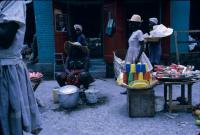 During the colonial era, the French colonists did not want to share anything with the slaves, including food. As the population grew and grew, the colonizers decided to give the slaves pieces of land called portion de vive which were to be used as a way for them to feed their own families. The producers on this land were so successful that they began to trade what they were growing.
During the colonial era, the French colonists did not want to share anything with the slaves, including food. As the population grew and grew, the colonizers decided to give the slaves pieces of land called portion de vive which were to be used as a way for them to feed their own families. The producers on this land were so successful that they began to trade what they were growing.
18.03.2021 | by The Public Archive
 Certainly, the virtual dimension will take a new importance, also in light of the massive use of digital tools that this new reality brought with itself, but also in relation to the fact that artists might end up not traveling a lot like before…who knows! The art that will change is only in relation to travel and distance. What could definitely change might be the distribution channels, moving more and more into streaming and digital platforms…but I really hope that this won’t happen. The emotion that live art arouses is incomparable.
Certainly, the virtual dimension will take a new importance, also in light of the massive use of digital tools that this new reality brought with itself, but also in relation to the fact that artists might end up not traveling a lot like before…who knows! The art that will change is only in relation to travel and distance. What could definitely change might be the distribution channels, moving more and more into streaming and digital platforms…but I really hope that this won’t happen. The emotion that live art arouses is incomparable.
12.03.2021 | by Marcos Jinguba
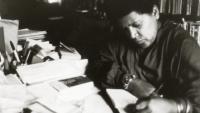 The oppressive policies and structural inequities that underlie the conditions of poor and working class people’s lives here and abroad date from the first invasion of native territories, and the last few decades have exacerbated these conditions. What our older films reveal is the similarity of conditions now with what existed 50 years ago.
The oppressive policies and structural inequities that underlie the conditions of poor and working class people’s lives here and abroad date from the first invasion of native territories, and the last few decades have exacerbated these conditions. What our older films reveal is the similarity of conditions now with what existed 50 years ago.
03.03.2021 | by Keelyn Bradley
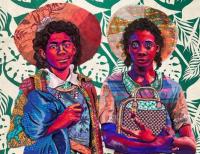 In Bisa's artwork , color is a language that speaks about African American evolution from enslavement in the United States to today's ongoing fight for Black liberation Bisa also draws on her Ghanaian heritage by illustrating the vibrancy of Africa's textile and fabric traditions. These artistic methods allow her to examine several themes including family, community, youth and power.
In Bisa's artwork , color is a language that speaks about African American evolution from enslavement in the United States to today's ongoing fight for Black liberation Bisa also draws on her Ghanaian heritage by illustrating the vibrancy of Africa's textile and fabric traditions. These artistic methods allow her to examine several themes including family, community, youth and power.
06.01.2021 | by Ugonna-Ora Owoh
 Today, tens of thousands of girls under the age of 18 were married off. Today, one in three women can expect to experience some form of physical or sexual violence in their lifetime. This needs to change, and it needs to change now. Each of these numbers tells a personal story and each one of these women or girls could have been my friend, my sister, my mother, my daughter, or me. That is what motivates me to create a better world for women and girls, no matter where they may be.
Today, tens of thousands of girls under the age of 18 were married off. Today, one in three women can expect to experience some form of physical or sexual violence in their lifetime. This needs to change, and it needs to change now. Each of these numbers tells a personal story and each one of these women or girls could have been my friend, my sister, my mother, my daughter, or me. That is what motivates me to create a better world for women and girls, no matter where they may be.
14.12.2020 | by Regina Jane Jere and Natalia Kanem
 Somewhere in between there is something more human that tries to understand these people, imagine if you had to flee your home and you could one carry one thing with you, how would you continue to be yourself? On top of fleeing and experiencing a traumatic conflict you turn up in a place that is supposed to be civilized and you get treated like an abomination. This project is about to try to humanize migrants and make them individuals and real people, our friends, our neighbors.
Somewhere in between there is something more human that tries to understand these people, imagine if you had to flee your home and you could one carry one thing with you, how would you continue to be yourself? On top of fleeing and experiencing a traumatic conflict you turn up in a place that is supposed to be civilized and you get treated like an abomination. This project is about to try to humanize migrants and make them individuals and real people, our friends, our neighbors.
26.11.2020 | by Alícia Gaspar and Rachael Kiddey
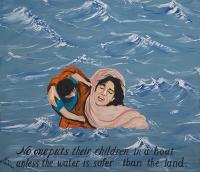 It has to do with the colonial history of Europe as a whole: I see this phenomenon of migration from the global south to the global north as the latest phase in the long history of racialized capitalism and colonialism. Many of these people who are trying to cross are coming from previously colonized countries by Europe. We know that, that long history of colonization has an impact in the present in terms of structural inequality, poverty, dispossession and war, and at the same time that we are seeing is the inability of Europe to come to terms with its own history. Which is a history of colonization, of course, instigated by proto-capitalism and capitalist developments as well as the hierarchy of racialization and the legacy of whiteness and white supremacy which fueled the whole colonial condition.
It has to do with the colonial history of Europe as a whole: I see this phenomenon of migration from the global south to the global north as the latest phase in the long history of racialized capitalism and colonialism. Many of these people who are trying to cross are coming from previously colonized countries by Europe. We know that, that long history of colonization has an impact in the present in terms of structural inequality, poverty, dispossession and war, and at the same time that we are seeing is the inability of Europe to come to terms with its own history. Which is a history of colonization, of course, instigated by proto-capitalism and capitalist developments as well as the hierarchy of racialization and the legacy of whiteness and white supremacy which fueled the whole colonial condition.
25.11.2020 | by Alícia Gaspar and Yannis Hamilakis
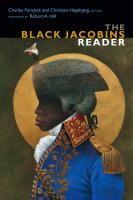 Stuart Hall once wrote that James in The Black Jacobins was the first to centre Atlantic slavery in world history – so in this sense the importance of James’s work to these debates is self-evident. Certainly, James’s short discussion on the economic roots of British parliamentary abolitionism formed the essential outline of Eric Williams’s more famous and lengthy contribution in this field – as Williams himself acknowledged, though in my opinion James’s grasp of the modernity of colonial slavery and the slave ships and plantations thanks to his underlying theoretical grasp of the uneven and combined nature of capitalist development meant his analysis of the exact relationship between capitalism and slavery is more sophisticated than that of Williams in many respects.
Stuart Hall once wrote that James in The Black Jacobins was the first to centre Atlantic slavery in world history – so in this sense the importance of James’s work to these debates is self-evident. Certainly, James’s short discussion on the economic roots of British parliamentary abolitionism formed the essential outline of Eric Williams’s more famous and lengthy contribution in this field – as Williams himself acknowledged, though in my opinion James’s grasp of the modernity of colonial slavery and the slave ships and plantations thanks to his underlying theoretical grasp of the uneven and combined nature of capitalist development meant his analysis of the exact relationship between capitalism and slavery is more sophisticated than that of Williams in many respects.
18.11.2020 | by Christian Hogsbjerg, Charles Forsdick and The Public Archive
 In Kwanza-Sul, she noticed the various rhythms and grandiosity of a country that cultivates laughter and a short memory to defend itself from the dramas that dehumanize it: slavery, colonialism, domination, small and large powers, opportunism, and ignorance. How dizzying the scheme of history in everyday life is. The generation to which she belongs worried about recovering the lost cultural memory in these violences and others, also with a vivid and intriguing look of the naivety and militancy of independence. I
In Kwanza-Sul, she noticed the various rhythms and grandiosity of a country that cultivates laughter and a short memory to defend itself from the dramas that dehumanize it: slavery, colonialism, domination, small and large powers, opportunism, and ignorance. How dizzying the scheme of history in everyday life is. The generation to which she belongs worried about recovering the lost cultural memory in these violences and others, also with a vivid and intriguing look of the naivety and militancy of independence. I  For a long time, we treated art as an illustration, the idea that it was a product of its context. But what if we inverted that, since we live in an image civilization, and think of an image as a production, not a product, it produces values, it produces conceptions. And also, when you criticize internally that whiteness classification, we can go through a lot of different questions: who are the people being portrayed? They are, in general, men.
For a long time, we treated art as an illustration, the idea that it was a product of its context. But what if we inverted that, since we live in an image civilization, and think of an image as a production, not a product, it produces values, it produces conceptions. And also, when you criticize internally that whiteness classification, we can go through a lot of different questions: who are the people being portrayed? They are, in general, men.  Lee-Ann Olwage, who admits she struggles with her own mental health issues, also has family members who have suffered or are suffering from Alzheimer's. For this reason, she states that, with her work, she aims to create a space in which the people she photographs can play an active role in creating the images and that, above all, makes them feel like the true “heroines” of their own stories.
Lee-Ann Olwage, who admits she struggles with her own mental health issues, also has family members who have suffered or are suffering from Alzheimer's. For this reason, she states that, with her work, she aims to create a space in which the people she photographs can play an active role in creating the images and that, above all, makes them feel like the true “heroines” of their own stories.  It is said in Mexico that good life stories are passionate. They are happy and painful, they tie and untie blind knots in the throat, like a harsh swallow of cheap tequila.
We set the tone and enter one of the taciturn taverns of the city of Guanajuato - the so-called "cantinas", where personal tales are distilled as the glasses advance. Rough stone walls in the half-light, damp breath. In my head, Chavela Vargas sings "Tú me acostumbraste." It's night and it's raining softly outside.
With a toast, we seal the moment. And we tell a secret life story.
It is said in Mexico that good life stories are passionate. They are happy and painful, they tie and untie blind knots in the throat, like a harsh swallow of cheap tequila.
We set the tone and enter one of the taciturn taverns of the city of Guanajuato - the so-called "cantinas", where personal tales are distilled as the glasses advance. Rough stone walls in the half-light, damp breath. In my head, Chavela Vargas sings "Tú me acostumbraste." It's night and it's raining softly outside.
With a toast, we seal the moment. And we tell a secret life story.  Two hours with Mia Couto in an engaging conversation that covers various aspects of his interests and career, his affective geographies, the diversity of peoples and their ways of life as inspiration for the stories, the environment, and the development model to be discovered, and how to treat nature not as a "resource". We talked about hard times of violence, and the utopia of Mozambican Independence. Literary subjects do not predominate, although the Mozambican author wishes he had more time to dedicate to writing. Also thinking about how to take the pleasure of reading further and how to help bring out new writers. A writer in the terrain.
Two hours with Mia Couto in an engaging conversation that covers various aspects of his interests and career, his affective geographies, the diversity of peoples and their ways of life as inspiration for the stories, the environment, and the development model to be discovered, and how to treat nature not as a "resource". We talked about hard times of violence, and the utopia of Mozambican Independence. Literary subjects do not predominate, although the Mozambican author wishes he had more time to dedicate to writing. Also thinking about how to take the pleasure of reading further and how to help bring out new writers. A writer in the terrain.  Balanced between various cultures, he has lived for 31 years in a more open and diverse Lisbon, an openness and diversity to which people like Lucky have contributed so much, from building the city to making the city dance.
This is a city of hard times, but also of encounters and possibilities with which he has grown up. In this text, we are led by the memories of Dj Lucky, between various sound tracks of quisange, semba, and afro blues, and multiple tracks on the floor, from Kinshasa to the Graça neighborhood, passing through Luanda, Cova da Moura, and Bairro Alto.
Balanced between various cultures, he has lived for 31 years in a more open and diverse Lisbon, an openness and diversity to which people like Lucky have contributed so much, from building the city to making the city dance.
This is a city of hard times, but also of encounters and possibilities with which he has grown up. In this text, we are led by the memories of Dj Lucky, between various sound tracks of quisange, semba, and afro blues, and multiple tracks on the floor, from Kinshasa to the Graça neighborhood, passing through Luanda, Cova da Moura, and Bairro Alto.  Stuart Hall’s ironic use of “the west and the rest” is very real in the fixation among South Africans with “us” and “Africa”. It was encouraging that a sense of South Africa’s inextricable connectedness to the rest of the continent surfaced at moments in the FMF struggle. But the curiosity about and interest in African politics, literature, and academic knowledge still hasn’t really taken off, whether among students or established scholars.
Stuart Hall’s ironic use of “the west and the rest” is very real in the fixation among South Africans with “us” and “Africa”. It was encouraging that a sense of South Africa’s inextricable connectedness to the rest of the continent surfaced at moments in the FMF struggle. But the curiosity about and interest in African politics, literature, and academic knowledge still hasn’t really taken off, whether among students or established scholars.  I think we always have the responsibility of looking into the ghosts of these colonial dreams and taking the ideas further. For example, we must rethink what are artwork features and what exactly defines them? Institutions change, in a slow and tedious way, but it happens. If we also think about the thesis and how it is configurated, how free can we be about the aesthetic part of it? Now we can offer “decolonize art studies” as a course. All the reconfigurations are a very long process to be achieved. A very important thing I would like to highlight is that where you are you must do your work and contribution. We should try to influence others with our work, inspiring them and trying to change what we know is wrong.
I think we always have the responsibility of looking into the ghosts of these colonial dreams and taking the ideas further. For example, we must rethink what are artwork features and what exactly defines them? Institutions change, in a slow and tedious way, but it happens. If we also think about the thesis and how it is configurated, how free can we be about the aesthetic part of it? Now we can offer “decolonize art studies” as a course. All the reconfigurations are a very long process to be achieved. A very important thing I would like to highlight is that where you are you must do your work and contribution. We should try to influence others with our work, inspiring them and trying to change what we know is wrong.  My work has always been focused round connection. I’ve always wanted to tell stories that even though you know the audience and the subject might be different I would want the audience to look at the photo, the subjects, and each detail and for them to be able to see something similar.
Most people that look at my most recent project “MIXED” and probably don’t necessarily think of themselves as mixed, however if we really look back at history and ethnicity it’s clear that we are all mixed, we just haven’t identified it . We all came from Africa and our genetic disposition is remarkably similar. The only differences we notice are as a result of our ancestors colonising different parts of our planet. Effectively we’re all mixed as racial purity is a complete myth.
My work has always been focused round connection. I’ve always wanted to tell stories that even though you know the audience and the subject might be different I would want the audience to look at the photo, the subjects, and each detail and for them to be able to see something similar.
Most people that look at my most recent project “MIXED” and probably don’t necessarily think of themselves as mixed, however if we really look back at history and ethnicity it’s clear that we are all mixed, we just haven’t identified it . We all came from Africa and our genetic disposition is remarkably similar. The only differences we notice are as a result of our ancestors colonising different parts of our planet. Effectively we’re all mixed as racial purity is a complete myth.  Today, I think that the field is challenged more than ever by the increased volatility of debates about what nations remember and consequentially forget. Monuments and memorials are being vandalized, torn down, officially removed. They can no longer be seen as simply part of an historical landscape. Much of this can be understood as battles over the historical narratives of monuments and their power, but it is also about tensions around who the nation mourns and who it sees or does not see as having a “grievable life” in Judith Butler’s term. So I see memory activism as a key site for the production of memory scholarship.
Today, I think that the field is challenged more than ever by the increased volatility of debates about what nations remember and consequentially forget. Monuments and memorials are being vandalized, torn down, officially removed. They can no longer be seen as simply part of an historical landscape. Much of this can be understood as battles over the historical narratives of monuments and their power, but it is also about tensions around who the nation mourns and who it sees or does not see as having a “grievable life” in Judith Butler’s term. So I see memory activism as a key site for the production of memory scholarship.  The article by Achille, I think, significantly points out the legitimacy of being limited from obtaining oxygen, by explicitly pointing out that for some parts of the world where healthcare is part of organized neglect, we are faced with more than just the need to physically breathe. There is a prohibition of breathing that is systemic in nature which is part of a larger need for the freedom to breathe (live). For example the violent killings of black civilians by the police in South Africa due to an unchecked implementation of COVID-19 laws and regulations left us questioning the relevance (need) for policing systems embedded in colonial rhetoric.
The article by Achille, I think, significantly points out the legitimacy of being limited from obtaining oxygen, by explicitly pointing out that for some parts of the world where healthcare is part of organized neglect, we are faced with more than just the need to physically breathe. There is a prohibition of breathing that is systemic in nature which is part of a larger need for the freedom to breathe (live). For example the violent killings of black civilians by the police in South Africa due to an unchecked implementation of COVID-19 laws and regulations left us questioning the relevance (need) for policing systems embedded in colonial rhetoric.  The significance of Mexico for this work is still emerging. Much more remains to be seen about just how deeply embedded the Mexican communists were in the radical networks across the Caribbean where black workers were predominant. Of what I have uncovered, the place of Mexico has two important functions in our historical understanding of the period. First, it was a place of refuge for not only radicals like the forced emigre from Republican Spain, but also for black revolutionaries like Jacques Roumain who spent some time there after being released from prison in Haiti and a short stint in Europe. Second, Mexico was the first people of color Communist nucleus in the western hemisphere, and the sense of anti-imperialism and sensitivity to chauvinism in the CPUSA was critical to strengthening the antiracist struggle across the region.
The significance of Mexico for this work is still emerging. Much more remains to be seen about just how deeply embedded the Mexican communists were in the radical networks across the Caribbean where black workers were predominant. Of what I have uncovered, the place of Mexico has two important functions in our historical understanding of the period. First, it was a place of refuge for not only radicals like the forced emigre from Republican Spain, but also for black revolutionaries like Jacques Roumain who spent some time there after being released from prison in Haiti and a short stint in Europe. Second, Mexico was the first people of color Communist nucleus in the western hemisphere, and the sense of anti-imperialism and sensitivity to chauvinism in the CPUSA was critical to strengthening the antiracist struggle across the region.  During the colonial era, the French colonists did not want to share anything with the slaves, including food. As the population grew and grew, the colonizers decided to give the slaves pieces of land called portion de vive which were to be used as a way for them to feed their own families. The producers on this land were so successful that they began to trade what they were growing.
During the colonial era, the French colonists did not want to share anything with the slaves, including food. As the population grew and grew, the colonizers decided to give the slaves pieces of land called portion de vive which were to be used as a way for them to feed their own families. The producers on this land were so successful that they began to trade what they were growing.  Certainly, the virtual dimension will take a new importance, also in light of the massive use of digital tools that this new reality brought with itself, but also in relation to the fact that artists might end up not traveling a lot like before…who knows! The art that will change is only in relation to travel and distance. What could definitely change might be the distribution channels, moving more and more into streaming and digital platforms…but I really hope that this won’t happen. The emotion that live art arouses is incomparable.
Certainly, the virtual dimension will take a new importance, also in light of the massive use of digital tools that this new reality brought with itself, but also in relation to the fact that artists might end up not traveling a lot like before…who knows! The art that will change is only in relation to travel and distance. What could definitely change might be the distribution channels, moving more and more into streaming and digital platforms…but I really hope that this won’t happen. The emotion that live art arouses is incomparable.  The oppressive policies and structural inequities that underlie the conditions of poor and working class people’s lives here and abroad date from the first invasion of native territories, and the last few decades have exacerbated these conditions. What our older films reveal is the similarity of conditions now with what existed 50 years ago.
The oppressive policies and structural inequities that underlie the conditions of poor and working class people’s lives here and abroad date from the first invasion of native territories, and the last few decades have exacerbated these conditions. What our older films reveal is the similarity of conditions now with what existed 50 years ago.  In Bisa's artwork , color is a language that speaks about African American evolution from enslavement in the United States to today's ongoing fight for Black liberation Bisa also draws on her Ghanaian heritage by illustrating the vibrancy of Africa's textile and fabric traditions. These artistic methods allow her to examine several themes including family, community, youth and power.
In Bisa's artwork , color is a language that speaks about African American evolution from enslavement in the United States to today's ongoing fight for Black liberation Bisa also draws on her Ghanaian heritage by illustrating the vibrancy of Africa's textile and fabric traditions. These artistic methods allow her to examine several themes including family, community, youth and power.  Today, tens of thousands of girls under the age of 18 were married off. Today, one in three women can expect to experience some form of physical or sexual violence in their lifetime. This needs to change, and it needs to change now. Each of these numbers tells a personal story and each one of these women or girls could have been my friend, my sister, my mother, my daughter, or me. That is what motivates me to create a better world for women and girls, no matter where they may be.
Today, tens of thousands of girls under the age of 18 were married off. Today, one in three women can expect to experience some form of physical or sexual violence in their lifetime. This needs to change, and it needs to change now. Each of these numbers tells a personal story and each one of these women or girls could have been my friend, my sister, my mother, my daughter, or me. That is what motivates me to create a better world for women and girls, no matter where they may be.  Somewhere in between there is something more human that tries to understand these people, imagine if you had to flee your home and you could one carry one thing with you, how would you continue to be yourself? On top of fleeing and experiencing a traumatic conflict you turn up in a place that is supposed to be civilized and you get treated like an abomination. This project is about to try to humanize migrants and make them individuals and real people, our friends, our neighbors.
Somewhere in between there is something more human that tries to understand these people, imagine if you had to flee your home and you could one carry one thing with you, how would you continue to be yourself? On top of fleeing and experiencing a traumatic conflict you turn up in a place that is supposed to be civilized and you get treated like an abomination. This project is about to try to humanize migrants and make them individuals and real people, our friends, our neighbors.  It has to do with the colonial history of Europe as a whole: I see this phenomenon of migration from the global south to the global north as the latest phase in the long history of racialized capitalism and colonialism. Many of these people who are trying to cross are coming from previously colonized countries by Europe. We know that, that long history of colonization has an impact in the present in terms of structural inequality, poverty, dispossession and war, and at the same time that we are seeing is the inability of Europe to come to terms with its own history. Which is a history of colonization, of course, instigated by proto-capitalism and capitalist developments as well as the hierarchy of racialization and the legacy of whiteness and white supremacy which fueled the whole colonial condition.
It has to do with the colonial history of Europe as a whole: I see this phenomenon of migration from the global south to the global north as the latest phase in the long history of racialized capitalism and colonialism. Many of these people who are trying to cross are coming from previously colonized countries by Europe. We know that, that long history of colonization has an impact in the present in terms of structural inequality, poverty, dispossession and war, and at the same time that we are seeing is the inability of Europe to come to terms with its own history. Which is a history of colonization, of course, instigated by proto-capitalism and capitalist developments as well as the hierarchy of racialization and the legacy of whiteness and white supremacy which fueled the whole colonial condition.  Stuart Hall once wrote that James in The Black Jacobins was the first to centre Atlantic slavery in world history – so in this sense the importance of James’s work to these debates is self-evident. Certainly, James’s short discussion on the economic roots of British parliamentary abolitionism formed the essential outline of Eric Williams’s more famous and lengthy contribution in this field – as Williams himself acknowledged, though in my opinion James’s grasp of the modernity of colonial slavery and the slave ships and plantations thanks to his underlying theoretical grasp of the uneven and combined nature of capitalist development meant his analysis of the exact relationship between capitalism and slavery is more sophisticated than that of Williams in many respects.
Stuart Hall once wrote that James in The Black Jacobins was the first to centre Atlantic slavery in world history – so in this sense the importance of James’s work to these debates is self-evident. Certainly, James’s short discussion on the economic roots of British parliamentary abolitionism formed the essential outline of Eric Williams’s more famous and lengthy contribution in this field – as Williams himself acknowledged, though in my opinion James’s grasp of the modernity of colonial slavery and the slave ships and plantations thanks to his underlying theoretical grasp of the uneven and combined nature of capitalist development meant his analysis of the exact relationship between capitalism and slavery is more sophisticated than that of Williams in many respects. 